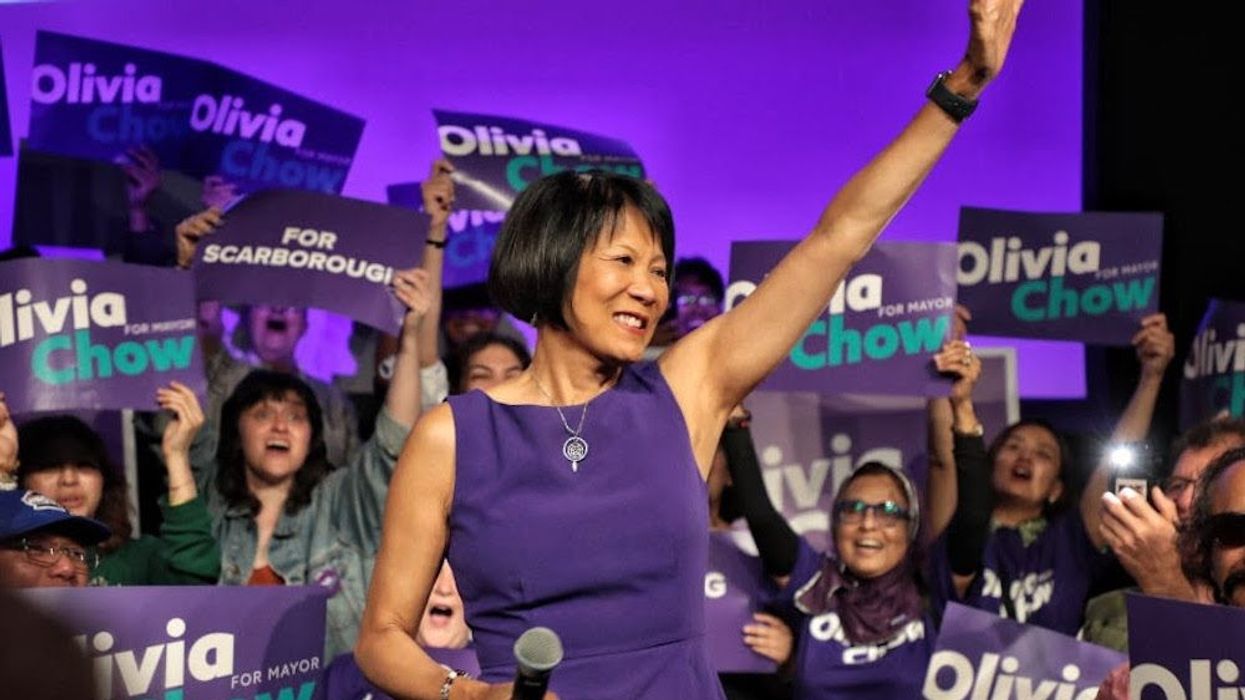Monday’s mayoral by-election yielded the anticipated result, albeit with a much tighter race than many expected. Front-runner Olivia Chow secured her first term as Toronto’s mayor with 37.2% of the vote from 1,383 of 1,451 polls reporting, beating out a late surge from former deputy mayor Ana Bailão who earned 32.4% of the vote with the same number of polls reporting.
With 102 candidates on the ballot -- including some mysterious big spenders and other, um, interesting characters -- Torontonians were spoiled for choice as they headed to voting stations today.
Since launching her campaign in mid-April, Chow -- a former city councillor, member of parliament, and school board trustee -- has garnered the endorsements of many familiar faces, including Gil Penalosa, who came in second to John Tory in the 2022 mayoral race. Several members of Toronto City Council have also been in Chow’s corner, including Ausma Malik (Spadina–Fort York), Jamaal Myers (Scarborough North), and Amber Morley (Etobicoke–Lakeshore).
Amongst voters, Chow had maintained a firm lead over her competitors in the months and weeks leading up to Monday's election. Polling by Mainstreet Research, which came in just before voting kicked off, put her at 36% support, six points ahead of Bailão and Saunders. While Bailão made the election a contest, Saunders saw his turnout dwindle to less than 10% of the overall vote count.
With so many Toronto residents grappling with the rising cost of housing, Chow’s platform seems to have resonated with voters (while already having put several of her competitors firmly on the offense). She has proposed raising the new Vacant Home Tax to 3% and using the funds collected to support the City’s existing affordable housing initiatives, including rent supplements. She has said that she hopes to double the reach of Toronto’s rent bank and triple the reach of the Eviction Prevention in the Community program.
She has also spoken about creating a Toronto Renters Action Committee -- a task force dedicated to establishing anti-renoviction bylaws, advocating for real rent control, and reviewing existing policies and programs related to renters -- and establishing a Secure Affordable Homes Fund, which would be used to purchase and transfer affordable rental stock to not-for-profit, community, and Indigenous housing providers.
As well, Chow has vowed to build 25,000 rent-controlled homes over the next eight years on City-owned land, including at least 7,500 affordable units and at least 2,500 rent-geared-to-income units.
“The City of Toronto has not built affordable housing for two decades and that has to change,” Chow told STOREYS in a previous interview. “The survival of a great city depends on how well we take care of each other, and you can’t do any of it without people having a roof over their heads.”
According to the City of Toronto’s website, Chow will now assume all rights, powers, and authorities of Toronto's mayor, taking over for Deputy Mayor Jennifer McKelvie, who has served in the role since John Tory’s exit in February.





















